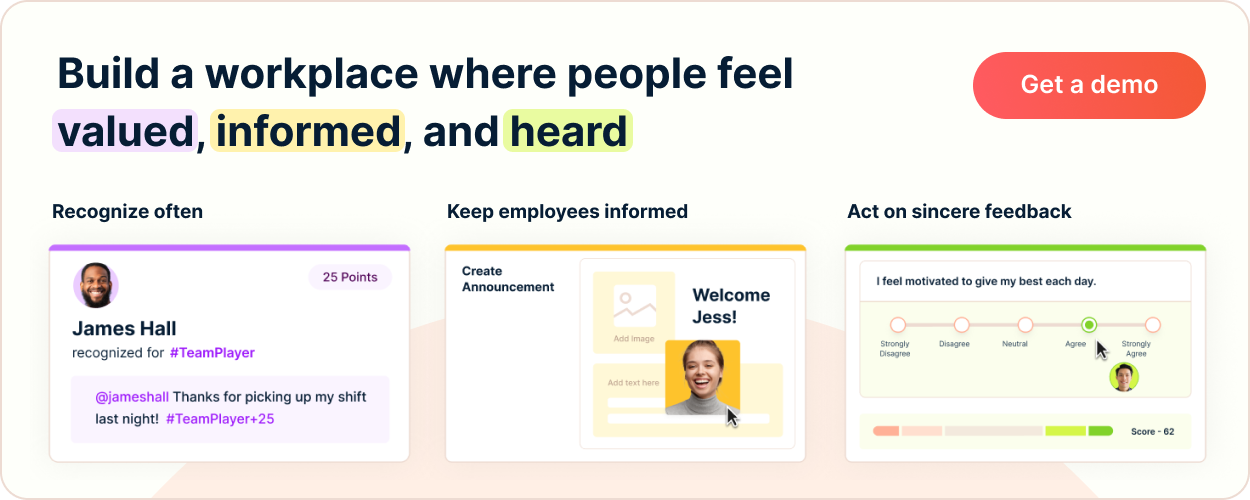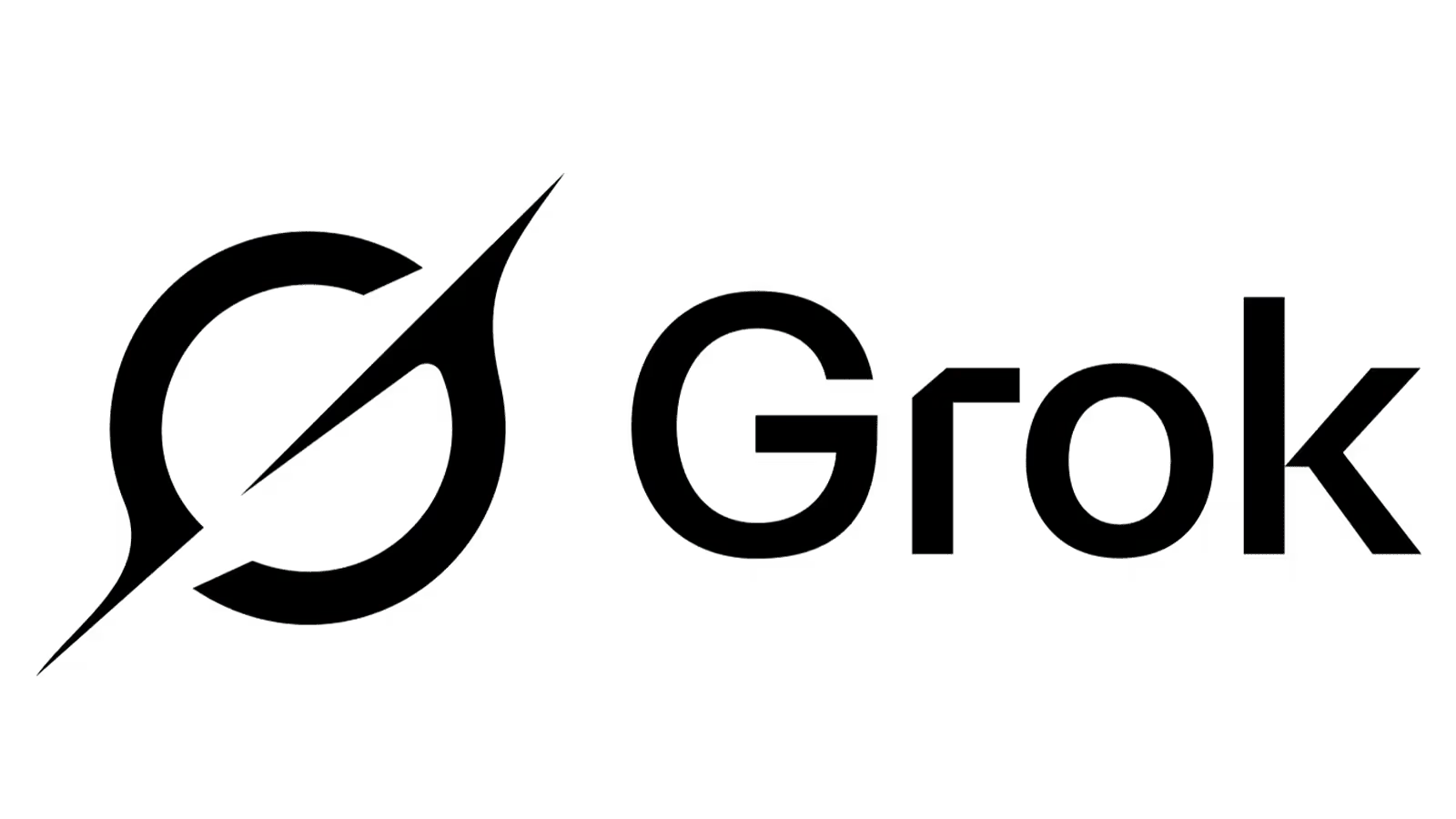15 Best HR Books To Support Your People Practices

Browse the business section of any library or bookstore, and you’ll notice the shelves are well-represented with titles about leadership and HR. Some focus on the author's real-life experiences, others dig into the science behind people management. But which ones are actually worth your time?
This article offers a list of the 15 best HR books to improve your people practices and deliver a better employee experience.
Why Read HR Books?
Whether you view HR books as a form of continuous development or just like to enjoy anecdotes from other leaders and people professionals, there's a wealth of valuable content to be found in this genre. HR books:
- Provide communication tips and strategies to manage conflict and encourage collaboration
- Encourage employee engagement by showing leaders how to create a positive work culture
- Introduce new perspectives on leadership based on the latest research and insights into behavioral science
- Explore current workplace issues from diversity and inclusion to mental health and work-life balance
- Provide practical advice for handling HR tasks like hiring and onboarding
- Encourage self-reflection and personal growth with exercises and prompts that nurture readers’ personal growth and development.
15 Best HR Books
The following books are a mix of new releases and timeless classics that cover a range of topics relevant to HR professionals and leaders alike.
1. Thinking In Systems: A Primer By Donella H. Meadows
Donella H. “Dana” Meadows was an American environmental scientist, teacher, and writer who penned “Thinking In Systems: A Primer.” The book asks the reader to focus on the role of systems, arguing that events like war, hunger, poverty, and climate change all happen when systems fail. In the book, Meadows uses a Slinky toy to illustrate the relationship between structures and behaviors when they’re clearly wired to move in a specific way.
CBD Nationwide CEO Katie Devoe describes her experience of reading the text:
“Systems thinking wasn’t exactly at the top of my reading list when I started my supplement manufacturing company. Coming from the ops side, I valued clarity, efficiency, measurable results. So, you can imagine my skepticism when a mentor gifted me 'Thinking in Systems.’ Suddenly, this interconnected web of people, policies, those seemingly soft factors, transformed from frustrating chaos into a system I could get my head around. Once I understood the interdependencies within our human ecosystem—how a tweak here can trigger a ripple effect there—I became a better leader because I could be strategic with every single HR decision.”
2. Radical Candor: Be A Kick-Ass Boss Without Losing Your Humanity By Kim Scott
“Radical Candor” is a book written by Kim Scott, a former Silicon Valley manager. Scott was inspired by a conversation with her former boss Sheryl Sandberg who mentioned that Scott said “um” a lot in important business meetings. At first, Scott didn’t hear the importance of the feedback, but Sandberg persevered, “When you say um every third word, it makes you sound stupid.” While this level of candor may not positively impact every employee, in Scott’s case, it prompted her to work with a speaking coach to sound more confident.
Radical Candor is now a well-known management philosophy based on “caring personally while challenging directly.” Companies like Qualtric, Lululemon, and Schindler Elevator have all hosted Radical Candor talks and workshops which outline the principles of the book and describe how leaders and peers can deliver honest and constructive feedback without being a jerk.
Ritesh Seth, Co-Founder at Empathy Employer, describes why Radical Candor is important to their business:
“As a champion of empathy in the workplace, I believe that fostering a culture of trust, vulnerability, and collaboration is key to unlocking human potential and driving business success.”
3. Drive: The Surprising Truth About What Motivates Us By Daniel Pink
Daniel Pink’s “Drive” is a must-read for any leader or HR professional that wants to understand how to drive their workforce and get the most out of them. Pink argues against the “carrot and stick” approach to motivation, where top performers receive an extrinsic reward such as a bonus or pay rise. Instead, Pink delivers fantastic insights into three elements of motivation: autonomy, mastery, and purpose. He examines the mechanics of each and provides strategies to trigger these intrinsic motivators in employees to instill a sense of satisfaction in their work.
Jacob Kalvo, Co-Founder and CEO at Live Proxies explains why he loves this book,
“Pink has provided countless important learnings about real human motivation, and in this perspective, I have learned how to motivate my team beyond financial incentives—focusing on autonomy, mastery, and purpose to keep them engaged at work, committed to the mission, and delivering their best.”
4. How To Tell If You're An A**Hole Boss By Tamica Sears
Tamica Sears is an Executive Coach and HR Consultant at Sears Coaching who poured her experiences of bad leadership into writing “How to Tell If You’re an A**Hole Boss''—an experience she describes as cathartic. The book aims to help people identify, reflect on, and change their own bad behaviors to create better lives for themselves and those who work with them. We spoke to Tamica, who shared the background to writing this book:
“In 2019, I took a job as the head of HR for a startup that I thought was going to change the world. During my initial interviews with the founders, I was given the impression that we were all on the same page when it came to leadership—employees came first. That turned out to not be the case.
Midway through 2020, when the financial cracks started to show, they began to display pretty abhorrent behaviors. I tried to be a buffer and help the employees have a good experience, especially as I was the one that hired most of them. But when the founder’s actions moved from bad and mean to unethical and illegal, I had to tap out. I chose to keep my integrity instead of my paycheck; I left with no job lined up and decided to move into making my coaching and consulting work my full-time job.
Because I had just been through one of the worst experiences in my adult life, I wanted to do something that might prevent someone else from feeling the way that I did at that moment in time. If just one person has changed their behavior after reading the book—mission accomplished.”
5. Unleashing the Power of Diversity: How To Open Minds For Good By Bjørn Ekelund
Bjørn Z. Ekelund is a seasoned psychologist and a renowned expert in organizational diversity.
In “Unleashing the Power of Diversity,” he delves into the crucial topic of harnessing DEI as a strength within a multicultural workplace.
In this insightful book, the author offers a range of practical tools and techniques designed to help readers understand and embrace cultural differences within their teams. He addresses both the challenges and the immense rewards of creating inclusive workplaces that respect and thrive on diversity.
6. F*ck Your Office Snacks By Tara Furiani
CEO Tara Furiani, is the host of popular podcast and YouTube show, “Not the HR Lady”, and author of “F*ck Your Office Snacks,” a book based on her 13-year tenure as Chief People Officer and strategist of SAIL Leadership. F*ck Your Office Snacks delves deep into important HR issues like workplace racism, misogyny, bigotry, ableism, and the struggles of being a working parent or woman. It’s a call to action to stop the nonsense and focus on what truly matters in the workplace, namely respecting and valuing employees with genuine, tangible actions.
The author weaves in real stories about her career, pop culture references, self-reflection questions and a “mansplaining” section in each chapter, created by Tara’s co-host Justin Boggs.
We were delighted to speak to Tara about what inspired her to write this book:
“It first began fairly early in the leadership portion of my career, aiding an organization to reimagine their people processes post a significant acquisition. The company was merging, growing by over 3,000 employees, and expanding into numerous states, which was a chaotic period with over 120% turnover and talent acquisition costs soaring.
I suggested something straightforward to the Board and Executive Team: pay people a meaningful living wage, not just the "minimum we could get away with" ... a mantra they'd been telling me. Their reaction was pure shock and immediate pushback. The idea of fair pay was treated like a wild and outlandish notion and the supplement, instead, should be the 'Friday Pizzas' or the 'Ice Cream Cart' in the Summer.
Time off? Absolutely not! Fair pay? You're kidding, right?! Parental Leave? HAHA!
This company was plagued with deep-rooted issues and this experience exposed a critical truth. Employers need to really think, plan, and care about the welfare of their employees. Plain and simple.
We don’t want meaningless perks; we want real value, safety, opportunity, flexibility, development, to generate wealth, and above all else, have a fair and livable compensation. We don't LIVE to WORK, we WORK to LIVE... and honestly, we've been exploited too long.”
7. The Authenticity Principle: Resist Conformity, Embrace Differences, and Transform How You Live, Work, and Lead By Ritu Bhasin
Ritu Bhasin is a leadership speaker, life coach, and author of “The Authenticity Principle.” Born to Sikh Punjabi parents living in Toronto, Canada, Ritu experienced racism and cultural tensions in her childhood, which she carried into her working life. Tired of succumbing to the pressure to fit in, she finally connected with her core values during her early 30s and left her corporate role to start a DEI consulting firm.
Ritu catalogs her experience of authenticity and belonging in her book, which is an important DEI read. Celeste McNeill, VP of Human Resources at ImageX, told us why this is one of her favorite HR books.
“The Authenticity Principle by Ritu Bhasin was a great read, reminding me how important it is to cultivate an environment of psychological safety and allowing our team members to be their authentic selves and enjoy a sense of belonging.”
8. Bring Your Human To Work: 10 Surefire Ways to Design a Workplace That Is Good for People, Great for Business, And Just Might Change the World By Erica Keswin
In “Bring Your Human to Work,” author and future of work expert Erica Keswin explores how authentic relationships in the workplace enhance employee satisfaction and company performance. Featuring case studies from companies like Lyft and Starbucks, the book is packed with practical advice on how to incorporate respect, integrity, and genuine interaction into every aspect of workplace culture.
Readers will gain valuable insights into how to create office rituals that promote team bonding and build workspaces in a way that encourages interaction and collaboration. This book is a great fit for leaders and managers responsible for creating a more engaged and connected workplace with human interaction at its heart.
Fellow author Serenity Bohon describes their experience reading it:
“The stories are top-down with examples of how particularly innovative companies are valuing their employees, putting wellbeing first, and making sure every employee catches and promotes the brand.”
9. The Essential HR Handbook By Sharon Armstrong And Barbara Mitchell
Originally published in 2008, and now in its 11th edition, “The Essential HR Handbook” is an indispensable classic that people and teams can use like a manual to dip in and out of. The book covers the entire employee lifecycle, including talent acquisition, onboarding, development, benefits, compensation, employee relations, and more. Here’s how one person uses the book in their role:
“I've been an HR professional for more than ten years, and I can honestly say that this book is a great primer on human resources for all levels of management. The topics are discussed in a clear, jargon-free, and concise manner. In my opinion, this book should be required reading for line managers, supervisors, and department heads. Even if you're a seasoned HR professional, not only are there a few gems in this book, it's a much-needed break away from the textbook-style books on the subject.
The chapters I found the most valuable were: optimal staffing, performance evaluations, benefits, managing a diverse workforce, and the 21st century workplace. The chapters on benefits and performance evaluations alone are worth the cost of the book. It's a great, quick read and will serve as a reference to many.”
10. Remote Not Distant: Design A Company Culture That Will Help You Thrive In A Hybrid Workplace By Gustavo Razzetti
Prior to 2020, few companies were ready to be plunged into a remote and hybrid environment, and many had no roadmap to support their changing culture. “Remote Not Distant” by Gustavo Razzetti, CEO of Fearless Culture, fills this gap, offering a blueprint to support team collaboration wherever employees are based. Book reviewer Olalekan Ayodele says,
“This book is a must-read. The author did not limit the scope of the content to personal experience even though they have onsite and remote expertise. He interviewed and carefully researched several experts, including CEOs, consultants, and even best-selling authors across all major industries.
The author goes deep into the foundation of cenacle, examining what culture stands for. They help clarify the saying attributed to Peter Drucker, that "culture eats strategy for breakfast". They explain that such an oversimplified statement does not provide adequate context to the relationship between culture and strategy—not rivals but two sides of a coin. That is a game-changer and it has changed my perspective.
The author uses a 5 step-roadmap which enables the reader to increase correctness, and collaboration in a distributed workforce. Gustavo further addresses the culture of inclusion, connection and feedback between HR, employers, and employees and further reviews the modes of collaboration in a hybrid work environment, its challenges and top-performing remote cultures of a hybrid workplace; including people who work entirely at the office, entirely from home or both.
No book has come as close to inclusiveness with its readers as "Remote not Distant." It includes a "your turn" activity which helps readers to download additional valuable resources at the end of the book.”
11. First, Break All the Rules: What the World's Greatest Managers Do Differently By Marcus Buckingham And Curt Coffman
“First, Break All The Rules” is a management bestseller, based on Gallup’s large scale study of leaders across a wide range of companies from Fortune 500 to startups. Authors Marcus Buckingham and Curt Coffman argue that the best managers focus on recruiting talented employees for their open roles, rather than their experience. The book describes how managers should build on these individual strengths rather than try to fix their weaknesses.
Joel Wolfe, President and Founder of HiredSupport describes how the text has had a strong influence on him, both personally and professionally:
“Reading this book was like sitting in a time machine and reflecting back on my career and how I would have improved my productivity by focusing on aspects that I had held over. It convinced me to change my management style and focus more on the strengths of an individual and not on what can be improved. Once the strategies laid out in this book are implemented it can help boost employee morale and creativity as they know they are being looked after in the long term.”
12. The Five Dysfunctions Of A Team By Patrick Lencioni
Patrick Lencioni is a keynote speaker, founder of the Table Group and author of several books, including “The Five Dysfunctions of a Team” which are the impact of absence of trust, fear of conflict, lack of commitment, avoidance of accountability, and inattention of results. The book examines their impact on teams and includes strategies to overcome them.
Stephen Greet, CEO and co-founder of BeamJobs, explains why he recommends learning about these five dysfunctions to create a cooperative, high-performing team atmosphere:
“Employers today prize the ability to work well in collaborative work environments. Developing team trust is one of the most important things I've learned from this book. Lencioni makes clear that teams that lack trust will find it difficult to resolve disputes, make decisions, hold one another responsible, and eventually accomplish their common objectives. As I think trust is the cornerstone of any successful team, this really spoke to me.
I've used this idea as a CEO by creating a vulnerable and open communication atmosphere. My team members are encouraged to express their ideas, even if they don't agree with the majority, and to handle disagreements amicably rather than defensively.”
13. Leaders Eat Last: Why Some Teams Pull Together and Others Don't By Simon Sinek
Simon Sinek is an American leadership speaker and author of “Leaders Eat Last,” a book inspired by the military. In this style of servant leadership, high ranking officers first care for the people under their command, before tending to their own needs. For example, eating, sleeping and receiving medical aid last. This practice can be adapted to the business world, by reminding leaders to prioritize the employee experience.
Eliot Vancil, CEO of Fuel Logic LLC describes,
“The focus of Sinek on establishing a secure and dependable environment at work struck a chord with me. Adopting his strategies has aided us in forming more robust, unified groups, leading to a clear enhancement in efficiency and spirit. This method has been especially beneficial in dealing with the intricacies of fuel logistics, where reliance and teamwork are crucial.”
14. Trust Factor: The Science Of Creating High-Performing Companies By Paul J. Zak
Paul J. Zak combines neuroscience and case studies to explain how trust impacts company culture and performance. In particular, he has researched the role of the hormone oxytocin in developing trust among teams.
In “Trust Factor,” Zak uses research and real-life examples to explain how building trust within a team or company can increase productivity, innovation, and overall success.
Readers gain insights into the biological basis of trust and learn practical strategies to build and maintain trust at work. If this sounds like a large task, the book also provides a framework you can follow to create a working environment that fosters innovation and collaboration. This reviewer recommends reading Trust Factor in conjunction with other HR books for a well-rounded view:
"Phenomenal book that takes a lot of ideas that others (Lencioni, Ferazzi, Maxwell) have talked about and brings the science in to explain the basis of human behavior. Zak tells great stories regarding both his research and interviews/experiences with some of the great business leaders/companies of our time. He has a good grasp of both the business side as well as the neurochemical basis of great leadership principles. Zak has an interesting background (approach) as an economist and now neuroscientist who works both in the field and the lab to understand human behavior and organizational dynamics.”
15. Nine Lies About Work: A Freethinking Leader’s Guide To The Real World By Marcus Buckingham And Ashley Goodall
In “Nine Lies About Work,” authors Marcus Buckingham and Ashley Goodall challenge common assumptions about work and leadership, offering a fresh perspective on topics like performance reviews, diversity, and work-life balance.
Through engaging storytelling and data-driven insights, the book encourages readers to think critically about traditional workplace practices and consider new ways of approaching leadership. The authors also offer actionable tips for creating a more productive and fulfilling work environment for employees. One reviewer explains why they believe this is the best leadership book ever written:
“Leadership is widely praised and poorly practiced. Worse, we often equate leadership with management, a serious mistake. Buckingham and Goodal do a superb job of exposing what many of us already suspected—all that corporate mumbo-jumbo about culture, planning, performance reviews, and other attempts to exert control aren't just baloney; they're counter-productive.
What is actually effective are teams, and leading a team doesn't require as much magic as is commonly believed. In fact, these guys present an almost step-by-step roadmap for successful leadership and do so in an easily readable and fun book. Importantly, their prescription is backed up by an almost obsolete concept: facts based on research.
Will this book change the dismal way in which corporations treat employees? Nope. But it might result in more highly successful teams. As the authors point out, that turns out to be far more important than the corporate PR nonsense.”
Challenge Your Leaders To Read HR Books With Nectar
Book reading challenges are a fun, sociable way to encourage your managers and people teams to read some top HR content written by authors who have been there and seen everything the modern workplace has to offer.
Nectar’s Challenges tool allows leaders to set up customizable book challenges based on your preference of titles, authors, and timelines. As an example, Nectar’s own employees earn redeemable Nectar points by reading two of the titles on our best HR books list: Paul Zak’s Trust Factor and Marcus Buckingham and Ashley Goodall’s Nine Lies About Work. Once our employees have completed the challenge, they can spend their earned Nectar points using our Rewards tool. This provides access to Amazon products, gift cards, charity donations, custom rewards, and company swag.
Ready to incentivize your employees to read a library of valuable HR content? Book a Nectar demo today to see our platform in action.















